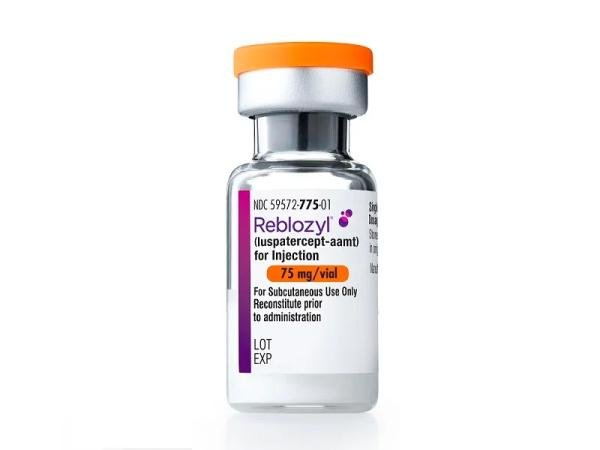Reblozyl Disease Interactions
There are 3 disease interactions with Reblozyl (luspatercept).
Luspatercept (applies to Reblozyl) renal/liver
Moderate Potential Hazard, Moderate plausibility. Applicable conditions: Liver Disease, Renal Dysfunction
Pharmacokinetic studies of luspatercept demonstrated no clinically significant differences in patients with mild to severe hepatic impairment and in patients with mild to moderate renal impairment. The effect of severe renal impairment on luspatercept pharmacokinetics is unknown. Care is recommended.
References
- (2019) "Product Information. Reblozyl (luspatercept)." Celgene Corporation
Luspatercept (applies to Reblozyl) thromboembolism
Moderate Potential Hazard, Moderate plausibility. Applicable conditions: Thrombotic/Thromboembolic Disorder
Thromboembolic events (TEE) have been reported in luspatercept-treated patients with beta-thalassemia. Patients with known risk factors for thromboembolism may be at increased risk of thromboembolic events. It is recommended to monitor patients for signs and symptoms of thromboembolic events and consider thromboprophylaxis in patients with beta-thalassemia at increased risk of TEE.
References
- (2019) "Product Information. Reblozyl (luspatercept)." Celgene Corporation
Luspatercept – hypertension
Moderate Potential Hazard, Moderate plausibility.
The use of luspatercept may cause hypertension. It is recommended to monitor blood pressure before each dose administration. New-onset hypertension or exacerbation of preexisting hypertension should be managed with anti-hypertensive drugs as clinically appropriate.
References
- (2019) "Product Information. Reblozyl (luspatercept)." Celgene Corporation
Reblozyl drug interactions
There are 2 drug interactions with Reblozyl (luspatercept).
Reblozyl alcohol/food interactions
There is 1 alcohol/food interaction with Reblozyl (luspatercept).
More about Reblozyl (luspatercept)
- Reblozyl consumer information
- Check interactions
- Compare alternatives
- Pricing & coupons
- Reviews (4)
- Drug images
- Side effects
- Dosage information
- During pregnancy
- FDA approval history
- Drug class: miscellaneous erythropoiesis agents
- Breastfeeding
- En español
Related treatment guides
Drug Interaction Classification
| Highly clinically significant. Avoid combinations; the risk of the interaction outweighs the benefit. | |
| Moderately clinically significant. Usually avoid combinations; use it only under special circumstances. | |
| Minimally clinically significant. Minimize risk; assess risk and consider an alternative drug, take steps to circumvent the interaction risk and/or institute a monitoring plan. | |
| No interaction information available. |
Further information
Always consult your healthcare provider to ensure the information displayed on this page applies to your personal circumstances.


